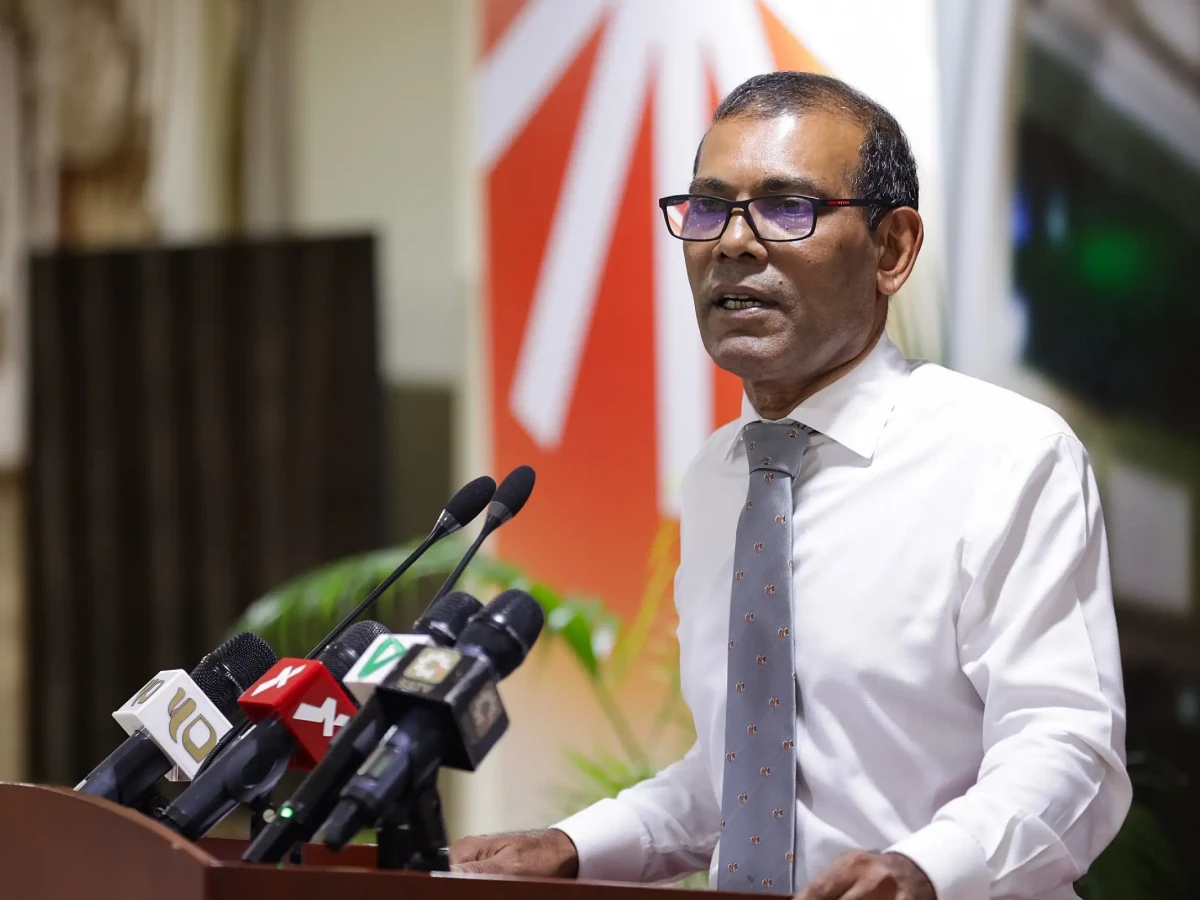
Nasheed commends Maldives cancelling US debt advisor agreement
Maldives cancelled its agreement with US-based Centerview, which was appointed to provide advisory services on the country’s debt management.
Top Stories
Former President Mohamed Nasheed on Tuesday expressed support for President Mohamed Muizzu's decision to cancel the agreement with US firm Centerview Partners, which had been engaged to provide advice on the Maldives' debt-related issues.
In a post on X, Nasheed praised the government’s action, noting that the agreement with Centerview had been signed at a significant cost to the country. He further commented that such debt advisory agreements often result in external firms taking "undue advantage" of countries in vulnerable financial situations, similar to the Maldives.
A finance ministry official confirmed the cancellation to Atoll Times on Monday.
According to another government official, the agreement with Centerview included a monthly payment of $55,000 (MVR 848,100). The decision to cancel the contract is part of new finance minister Moosa Zameer's broader efforts to reduce state expenditures.
The official further stated that the high cost of the advisory service, paid in foreign currency, was reconsidered. This decision was made after consultations with President Muizzu, aiming to address the country's current economic difficulties.
Recent concerns have emerged over the potential risk of the Maldives becoming the first nation to default on its Islamic sovereign debt. This comes as the government faces the maturity of a $500-million Sukuk in 2026 amidst shrinking foreign currency reserves.
According to data from the World Bank, the Maldives' total public and publicly guaranteed debt stood at $8.2 billion in the first quarter of this year, equivalent to 116% of its Gross Domestic Product (GDP). Nearly half of this debt is external, with significant portions owed to China and India, who have extended loans of $1.37 billion and $124 million, respectively.
In recent weeks, both China and India have provided support to the Maldives, which has helped ease investor concerns about a potential debt crisis and stabilise the country's international bonds.
Beijing signed a financial cooperation agreement with the Maldives in September to bolster trade and investment ties.
Meanwhile, India subscribed to a $50-million Maldives treasury bill last month and approved currency swap deals exceeding $750 million in October.
Maldives' only international bond, which had dropped to 66 cents on the dollar in early September amid heightened debt worries, is now trading around 80 cents, according to Tradeweb data. This level is above the 70-cent threshold, which is generally considered a sign of distressed debt.
Related
Related

VIA share sale better than high-interest bond issue, Nasheed says

Zameer says April Sukuk to be refinanced after revenue review

President says Sukuk refinancing will not exceed 9% interest

